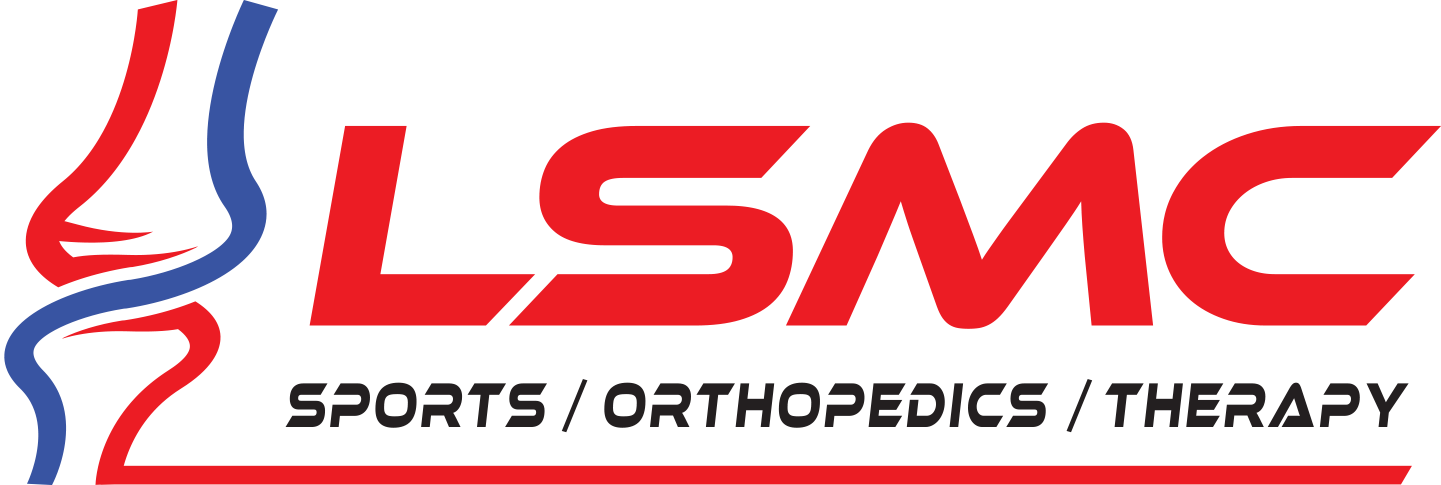’Tis the season for easy living—until a bug bite, a burn, or a little too much booze does you in. More than 29 million people are treated in the ER for injuries every year, according to the CDC, and summertime is far and away the busiest season. (This is especially bad news when you consider the fact that hospital medication errors—and fatalities—also spike in summer.) Here’s how to avoid becoming a statistic, and some treatment tips if you’re reading this a little too late.
1. BBQ blunders Making burgers and kabobs sounds like a brilliant idea, until you remember that you aren’t a grill master. U.S. fire departments respond to an average of 8,200 home fires involving grills, hibachis or barbecues per year, and burns to the skin and smoke inhalation are far more numerous. Sidestep it: Exercise caution when lighting the grill and opening the cover, since once it’s fired up, the whole shebang is hot. And while it’s tempting to toss some gasoline or kerosene on the grill to see it flame, “Refrain,” says Henderson D. McGinnis, MD, assistant professor in the department of emergency medicine at Wake Forest Baptist Medical Center in Winston-Salem, North Carolina. Always grill in a well-ventilated area and use long tongs so you don’t scorch yourself or your clothing. Learn 5 more grilling safety tips. Treat it: If it’s a minor burn, hold the skin under cool running water to reduce swelling for up to 15 minutes or until the pain subsides. “If the burn is on the face, hands, or over a large part of the body, you may want to seek medical attention,” says Dr. McGinnis.
2. Killer sunburns They not only hurt like hell, they are evidence of a weakened skin defense. “A burn is an inflammatory reaction by our skin to the sun,” says Ranella Hirsch, MD, a Boston dermatologist. Plus, extensive research shows that repeated burns can damage your DNA and increase your risk of skin cancer. Sidestep it: Dr. Hirsh recommends sunscreens with broad spectrumUVA and UVB protection. “But more important than the number is how often you reapply it,” says Dr. Hirsch. Slather on another two or three tablespoons every 90 minutes, whether you’ve been in the water or not. Treat it: If your skin is scorched, mix one part whole milk with one part cool water and gently apply it into the affected areas with a washcloth. “The proteins in the milk will take away the sting immediately,” says Dr. Hirsch. And as it heals, resist the urge to peel off the flaking skin. “You’re opening up ports of entry for infection.” Get More All-Natural Sunburn Cures.
3. Lawn mowing injuries Cutting the grass is not only dirty and loud, it’s dangerous: Each year 80,000 Americans require hospital treatment for lawnmower accidents, the majority of which are caused when other things—think rocks and sticks—are accidentally picked up and thrown by the mower blades. Sidestep it: Make sure your mower is in good working condition, clear the yard of any objects that could be flung by the lawnmower blades, and don’t mow without enough daylight. “Always wear proper protective equipment, including pants, long sleeves, closed toe shoes, sunglasses and, ideally, hearing protection,” says Dr. McGinnis. Treat it: It depends on where you get hurt, but see a doctor right away if your eyes are injured. If you’ve cut yourself, clean the wound with soap and water, and control the bleeding with pressure. “If the injury is severe, seek immediate medical attention,” says Dr. McGinnis.
4. Heat rashes Prickly heat—also known as heat rash—can emerge on the skin in the hot, humid weather. Symptoms range from small blisters to deep, red lumps, and is often intensely itchy. You may spy it on your thighs after a sweaty walk or run, on your upper chest, and almost anywhere else on your body. Sidestep it: Reduce sweating by staying in the AC in extreme temps, and wear lightweight, breathable clothing when you can’t hunker down indoors. Exercisers should change out of their soaking-wet gym clothes as soon as their workout is done and shower with an anti-bacterial soap: “Most heat-related skin problems happen when your clothes trap in the sweat,” says Dr. Hirsch. Treat it: Mild cases should go away in time without any medical treatment. If you have a more severe rash, you can calm the skin with calamine lotion or, in more serious cases, topical steroids. MORE: Do You Smell?
5. Aching feet Flip-flops have their purpose, but walking in them all day shouldn’t be one of them. “They provide no arch support, and they offer very little cushioning,” says Tony Wanich, MD, orthopedic surgeon at Montefiore Medical Center in New York City. Plus, your exposed tootsies have no protection against sharp objects and dirt, and your ankles are sanssupport altogether. Sidestep it: Unless you’re hanging out in a locker room, poolside, or on the beach, skip the flips and select a sturdier shoe. “As we get older, we tend to have collapsing of the arches, and a flip-flop doesn’t do anything to help support that,” says Dr. Wanich. “They throw off the entire alignment of your lower body, causing knee, back, and hip problems.” Choose a sandal that has more contour and arch support. Learn More Ways Your Shoes Are Causing You Pain. Treat it: OTC pain relievers may help, but now may be the time to get—or give yourself—a foot massage. Sit in a comfortable chair and gently rub lotion or oil into your toes, arch, and heel. For a deeper massage, press the knuckles of your hand into your foot, kneading it like bread dough.
6. Massive hangovers You may be inclined to fête like every night is the Fourth of July, but early-AM alarm clocks (and kids and job responsibilities) harshly remind us that we don’t have all day to recuperate anymore. Plus, excessive alcohol consumption is linked to a host of health risks, including higher odds of developing breast cancer. Sidestep it: This is a no-brainer: Lose your glass after a drink—or at the most two. If you know you’ll be partying, plan ahead and take a B-50 complex supplement the night before. Excess alcohol depletes the body of essential B vitamins (which help break down alcohol in the body), so this supplement helps metabolize the alcohol. (See which summer cocktails are calorie bombs.) Treat it: Drink as many fluids as you can. “Rehydrate with water and electrolyte-replacement solutions like sports drinks,” says Dr. McGinnis. “If you can’t keep liquids down, seek medical attention.”
7. Too-challenging workouts You see a swimming pool, ball field or basketball court and forget it’s been a few years (or decades) since you donned your varsity jacket. “As we get older, most of us haven’t done enough to stay in shape, so we try to do things that our bodies aren’t used to.” says Dr. Wanich, “So basically, our bodies aren’t adequately prepared.” Sidestep it: The most common injuries are knee sprains, since older, less flexible tendons are less able to tolerate impact and load. “Warm up adequately before attempting any exercise,” says Dr. Wanich. And don’t just stretch the body parts you’ll be using for a specific activity, like the shoulders if you’re throwing or quads if you’re running. “Every athletic movement involves the entire body,” he says. Treat it: If you have a sprain, take OTC anti-inflammatories and rest, ice, wrap and elevate it. “If after two days it’s still painful, you have a limited range of motion, or you can’t put weight on the joint, you should see a doctor to have it evaluated further,” says Dr. Wanich.
8. Bug bites Creatures that crawl and sting are one of summer’s biggest drags. And beyond the creep factor, mosquitoes can carry West Nile virus and ticks can carry Lyme disease, two very serious (and potentially deadly) diseases. Sidestep it: If you’re heading into the woods, skip the shorts and tanks and cover up with lightweight, long-sleeved shirts and pants. Make sure to also wear insect repellant on exposed skin. Treat it: About 80% of patients with Lyme disease develop a circular, red “bull’s-eye” rash at the site of the tick bite. If you spy that, see your doctor immediately. Symptoms of West Nile include fever, headache, tiredness, and body aches, a skin rash on the trunk of the body, and swollen lymph glands. See a doc for that, too.
9. Dehydration It happens when your body loses more fluid than you take in, and high temps accelerate the problem by switching our sweat glands into overdrive. Dehydration can lead to a host of health problems, ranging from sluggish brain function to heat exhaustion or stroke. Sidestep it: Stay hydrated by drinking water or electrolyte replacement solutions whenever you feel thirsty. Freeze a half-full water bottle and fill it before you head outside. Take sips regularly if you’re exercising; six to eight ounces of water every 15 minutes should be enough. “You should try to do outdoor activities during the cooler times of the day, and if you work outside, make sure you take frequent breaks in the shade,” says Dr. McGinnis. Treat it: Most adults with mild to moderate dehydration can improve their condition just by drinking more water, according to experts at the Mayo Clinic. If you’re severely dehydrated, head to the ER where you can receive intravenous fluids to restore your balance.
Article courtesy of prevention.com
LSMC reminds you to have a safe summer. It’s always our goal to provide our patients and the community as much information as possible. LSMC is the premiere orthopedic and sports medicine clinic in Laredo. We also offer phyisical therapy and in house x-ray services at two locations, on in North Laredo and one in South Laredo to better serve you.









